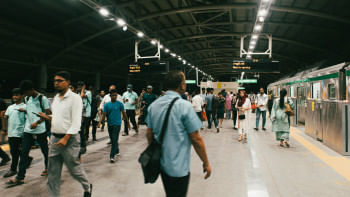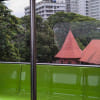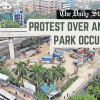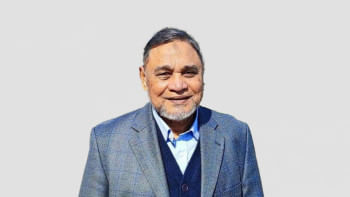Metro rail operations must be resumed without delay

It is disheartening to see the continued suspension of Dhaka metro rail services—now into its second month—despite earlier assurances about services resuming on August 17. On Sunday, the newly appointed adviser of the road transport and bridges ministry expressed hope that the metro rail would be operational within seven days. And an announcement in this regard may come as early as Monday when a reconstituted board of the Dhaka Mass Transit Company Ltd (DMTCL) is set to convene to discuss grievances of the employees refusing to return to work. What all this means for the commuters is a few more days of suffering before things get better.
The metro work abstention is but a reflection of the chaos and disruption being witnessed across the civil service after the fall of the Awami League government on August 5. At the Secretariat, for example, there have been frequent processions by civil servants who were previously denied promotions, for political reasons or poor performance, or preferred placements—all seeking personal benefits rather than better public services. Although the closure of metro services since July 18 was initially linked to the vandalism of two stations during the quota reform protests, it later transpired that around 700 DMTCL employees from grades 10 to 20 have been holding a strike since August 6, shutting any chances of prompt resumption.
According to our report, the employees have six demands, including one for salary increase. They argue that those in grades 1 to 9 earn 2.3 times the national pay scale, while those in grades 10 to 20 earn twice the pay scale. They see this as "discrimination," and are demanding that it be rectified. This calls for a comprehensive review of the pay and benefits at DMTCL, which we hope the board will do soon. However, we cannot condone a total work stoppage for something that can be resolved amicably, especially when said stoppage has left thousands of daily commuters struggling with increased travel times, overcrowded roads, and higher transportation costs. The metro was designed to alleviate severe traffic congestion in Dhaka, and its absence is a significant setback.
Resuming its services, therefore, must be a top priority. The interim government's role in this regard is critical. It must ensure that the DMTCL management is supported in meeting the legitimate demands of its employees while also safeguarding the interests of the public. In the long run, the authorities must learn from this experience. Employee grievances should never be allowed to fester to a point where they disrupt essential services. On their part, the protesting employees, too, must understand that they cannot hold the public hostage for their own benefits. It is completely against the spirit of public service.


 For all latest news, follow The Daily Star's Google News channel.
For all latest news, follow The Daily Star's Google News channel. 










Comments